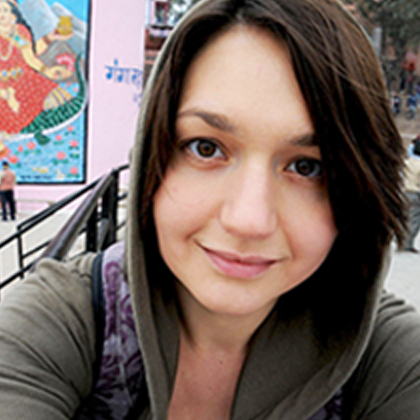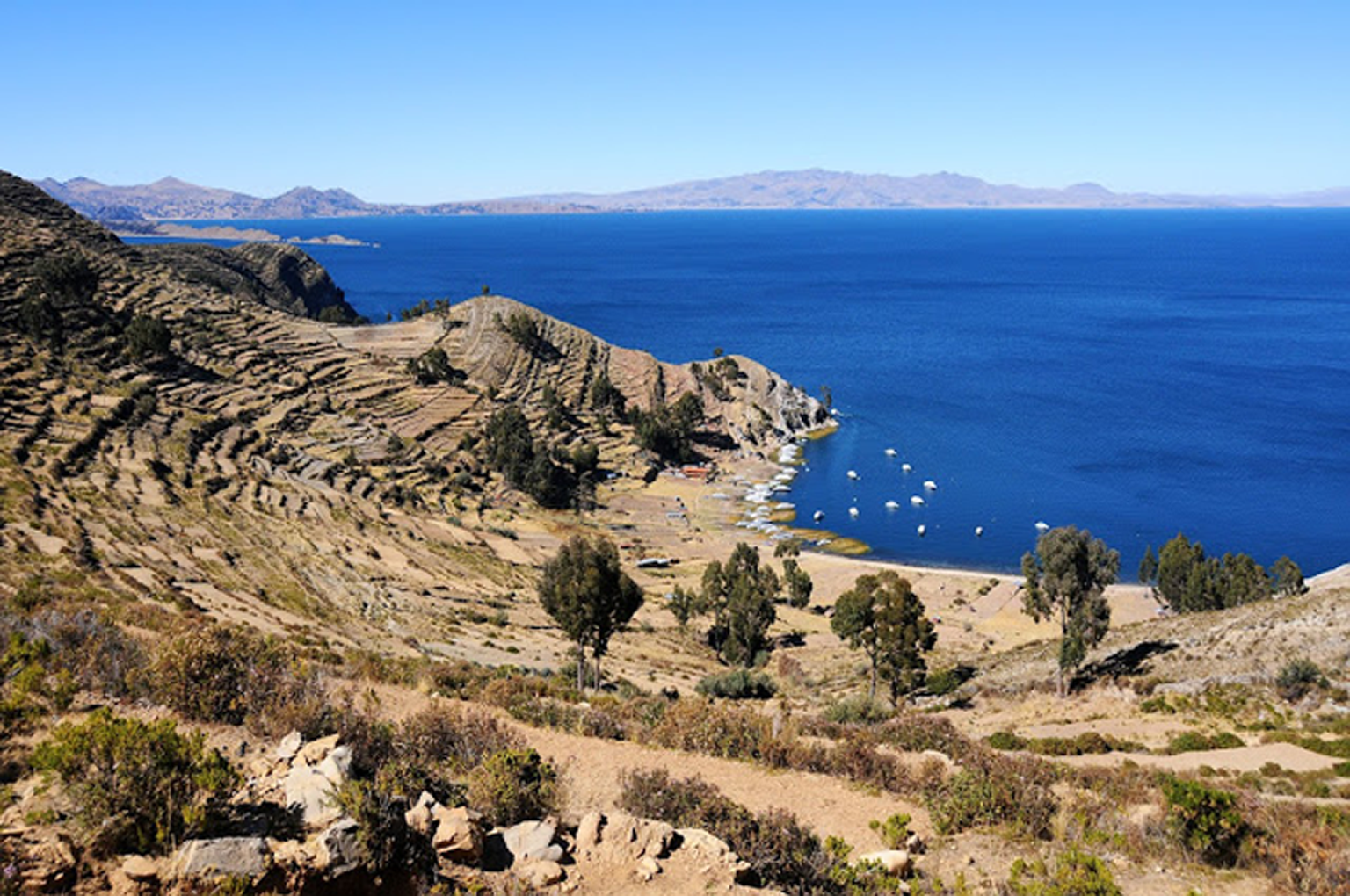- Posted by:
- anjci
- Under:
- Eurovision
Take this year’s host nation, Azerbaijan. No other country ever seemed happier to host Eurovision. The brand new concert arena seating 23,000 – Crystal Hall – was erected in record time especially for the occasion. The Azerbaijani capital, Baku, has been visibly polished up for the competition. The so-called country postcards – short video clips – presenting Azerbaijan’s traditions and everyday life were lovingly prepared and featured between the participants’ performances. After a full year of rigorous preparations, Azerbaijan will certainly be remembered for its spectacular efforts in delivering a great show to an audience of 120 million – the average number of viewers estimated to watch the contest every year.
Euphoria for Sweden
Following last year’s hotly disputed race for the coveted top spot, the outcome of this year’s contest seemed to be clear long before the finals. The bookmakers’ favourite Loreen received an absolute record of 18 “douze-points” to seal a win for Sweden with her energetic Euphoria. Having already achieved platinum status in Sweden and lingering in number one spots in other Nordic countries, this song had been widely tipped for a landslide victory. The song received a total of 372 points, only narrowly failing to achieve the all-time record of 387 set by Norway’s Alexander Rybak in 2009.
Even without Loreen, this year’s Eurovision was heavily dominated by a Swedish presence. Every song with Swedish involvement succeeded in making it past the semi-finals: a total of 10 out of 26 songs in the final round. By far the best recognised Swedish composer on that list was Thomas G:son, who co-composed the entries for Sweden and Spain, thus taking his total Eurovision participation to seven songs and pocketing his first ever Eurovision victory with Euphoria.
Same old faces, same old language
Composers aside, Eurovision 2012 also saw the return of five artists who had already presented their countries previously: Jonsi from Iceland (whose Dracula-inspired Never Forget may sadly have been forgotten already), Kaliopi from FYR Macedonia (did you know her full name used to be Kaliopi Grill?), Pasha Parfeny from Moldova (who in his third performance at Eurovision frankly begun to sound a little desperate), Zeljko Joksimovic from Serbia (strangely pronounced as ‘Djokovic’ by every UK commentator) and – last but not least – Jedward from Ireland. It was certainly a huge relief to see the once naughty Irish twins maturing into the artists we all knew they could be. Well, sort of.
English continued to preside as Europe’s preferred lingua franca as only six out of 26 songs in the finals were performed entirely in the native language. As last year, the highest ranking 100 per cent non-English entry came from Serbia which finished third. As a total shocker, even France introduced some English words into their song this year. Sadly, not even that helped Anggun – apparently the world’s most played artist singing in French – to attract votes, leaving France’s Echo (You And I) ranked low at 22.
From 16- to 76-year-olds
This year’s Eurovision may well have seen the widest ever gap in the participants’ ages. Several artists looked to have freshly graduated from the Junior Eurovision Song Contest: Slovenia’s Eva Boto was the youngest at 16 while Belgium’s Iris (17) and Cyprus’s Ivi Adamou (18) weren’t trailing too far behind. None of them made it past the semi-finals, suggesting that another year or two of gathering experience in the younger league would perhaps not have been such a bad idea.
In contrast, a special Pensioners’ Eurovision Song Contest may soon need to be created after both Russia and the United Kingdom put forward rather elderly representatives. The former rocked with a six-piece vocal band of “grannies” from the Udmurt Republic, Buranovskiye Babushki, whose oldest member was 76. The ethnic techno-pop Party for Everybody scored a very respectable second spot which left even Graham Norton – the UK Eurovision TV presenter otherwise best classified as evil – touched, as he described the singing affair as “charming”.
Just as old as the frailest of the grannies – but far less successful – was the UK’s legendary Engelbert Humberdinck, best remembered for guarding the top spot of Britain’s music charts from the likes of The Beatles years ago. It is great to hear they have finally found talent in the UK. Sadly, the maestro’s retro Love Will Set You Free sounded largely misplaced in this year’s contest – as it would have 20 years ago for that matter, leaving the UK second last. The fact that the country seemed to be thankful even for that (“We’re not last!” screamed the Sunday newspaper headlines in relief) showed the whole extent of the Eurovision demise the UK has fallen into. Whoever still remembers their last victory – Katrina and the Waves’ Love Shine a Light – back in 1997?
Some regional trends
It wasn’t just the UK who went for the old proven formula. Most of former Yugoslav nations sent artists with well-established names. FYR Macedonia’s Kaliopi is certainly her country’s top artist since the heavenly voiced Tose Proeski died in a car accident in 2007. Zeljko Joksimovic of Serbia is vastly popular all over the region and, with a moving Nije Ljubav Stvar, scored his fourth participation in Eurovision as a singer and composer. Bosnia and Herzegovina’s Maya Sar collaborates with top regional acts and in fact performed as part of Dino Merlin’s band at Eurovision in Dusseldorf last year. Finally, while Croatia’a Nina Badric and Montenegro’s controversial Rambo Amadeus both failed to qualify for the finals, their music careers date back decades and continue to go strongly today.
In the light of this stellar regional representation, it was strange to see another former Yugoslavian country – namely, Slovenia – contenting itself with an inexperienced 16-year-old. But then again, Slovenia has always been different.
An interesting trend seems to have emerged in Western Europe where notably many entries were performed by first and second generation immigrants. Sweden’s victorious Loreen in fact stems from Morocco; Norway’s Tooji is of Iranian origin; Anggun moved to France from Indonesia 15 years ago; and the Dutch singer Joan Franka is half Turkish.
…and some surprises
As always, the night was marked by several surprises. Rona Nishliu scored Albania its first ever top five result with an admittedly terrifying Suus and an equally unpleasant tail-like braid flowing down the singer’s neck. Now, Rona is unlikely to enjoy a lasting career if she keeps doing that sort of thing to her vocal chords.
Since representing Ireland at last year’s Eurovision, the Jedward duo have enjoyed massive publicity and vouched to take the contest home with their pulsating Waterline. The performance may have featured a real fountain on stage – which the twins made full use of by eventually getting soaked – but left the audience indifferent, landing Ireland a 19th position. I have a feeling the twins may keep on coming back until they win though, so don’t write them off just yet.
Denmark really Should’ve Known Better than sending Soluna Samay to Europe’s annual parade of musical, erm, talent. While rather melodic, the song failed to register in the minds of the voters, finishing 23rd. What didn’t fail to register, however, was the singer’s hat – big enough to take around the audience for a collection after the performance. Did you know Soluna used to be a busker? After scoring one of the most disappointing results for Denmark in years, at least she still has that option.
One of the oddest stage solutions came from Turkey, whose Sacha Baron Cohen lookalike – civilly going under the name of Can Bonomo – ended up building an improvised boat from his bands’ capes. Love Me Back clearly echoed its title, finishing 7th. Not sure about you, but, while some of Azerbaijan’s country postcards have inspired me to visit the country, I won’t be coming to Tur-quay – sorry, Turkey – for a while after this creepy performance.
Thankfully, there were some pleasant surprises, too. Estonia pulled off the simplest arrangement of the night with a lone singer – a very good one, admittedly – and the slow track Kuula unexpectedly receiving vast public support finishing 6th. All that without any Swedish interference!
The rest of the entries mostly entertained. Greece’s Finance Minister is probably smiling in relief now that a very scantily dressed Eleftheria Eleftheriou (is the situation in Greece really that bad?) failed to burden the country with an unaffordable contest. Moldova’s grammatically challenged Lautar featured some truly suggestive lyrics (“this trumpet makes you my girl” is only one example) while Lithuania’s Donny Montell appeared on the stage blindfold (I hope someone had told him he was live on air). Amy Winehouse looked to have risen out of the grave as Italy’s Nina Zilli thought no better than to mimic the late singer’s looks. I’m also wondering if Celine Dion knows she has an avid admirer in Azerbaijan’s Sabina Babayeva – whose melancholic When The Music Dies could well serve as an alternative name for the whole contest.
The most important thing though? After missing a couple of contests, Malta certainly had fun on stage. And if I were you, I’d watch out for those twisting feet in Sweden next year.











anjci says:
May 29, 2012 at 9:14 am
Thanks a lot for the comment, Helen! Agree fully that treating the contest as a joke AND expecting a poor UK entry to do well regardless is a bit inconsistent. There have been contests recently when the UK did relatively well, so the challenge remains to supply good quality music (or shall I say Eurovision quality music?) well fit for the audience. Which Engelbert somehow wasn't…
Hope little Mr. W. is doing well : )
Helen Valvona says:
May 28, 2012 at 7:54 am
I managed to miss the first five songs by pausing the TV then forgetting we were watching on catchup and switching onto the red button for the singalong subtitles, doh!, so I was unfortunate not to have seen "The Hump". Sounds like I didn't miss much though.
As a UK national I am always slightly confused by the fact that we treat Eurovision as a huge joke/embarrassment/something the "continentals" do, and then are shocked/outraged/blame political voting when we do badly. Its a very British trait, I suppose.
Although the competition has had a much bigger following here in recent years – at least more people are admitting to it. Perhaps they are most interested in the acerbic commentary provided by Graham Norton, following in the footsteps of "the great" Terry Wogan, both of whom might reasonably be expected to be more supportive of Jedward than the UK entry.
I'm not entirely sure on what basis the BBC gets to choose the UK's Eurovision entry. I recall vaguely that we used to have a publicly voted competition for this – but then again I think that produced Jemini which earned us nul points so perhaps the British public aren't to be trusted after all.
Although maybe we'd have done better to send Ashleigh and Pudsey of Britain's Got Talent fame as backing dancers…
Must post this now as a) I could go on forever and b) a certain small person is trying to grab the keyboard as I type.
Comments are closed.